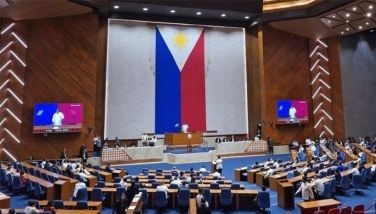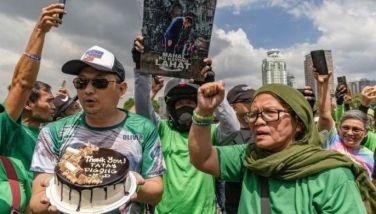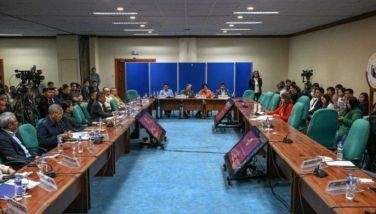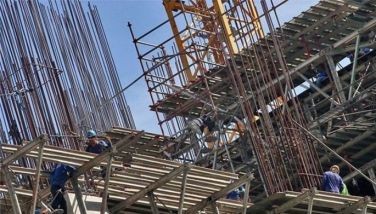9 nations adopt declaration on health care protection
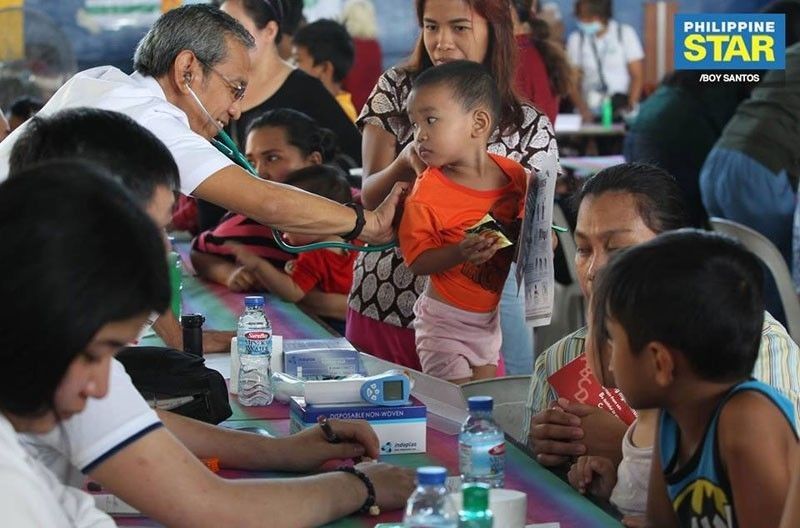
MANILA, Philippines — Sixty-five participants in the International Committee of the Red Cross (ICRC)’s nine-country regional meeting held recently in Makati City have adopted a declaration on protecting health care in conflict zones in the Asia-Pacific region.
“Representatives of health ministries, medical associations, academia, military and aid organizations from nine countries have committed to work on ensuring that health care is safe from disruption and violence in the Asia-Pacific region, affirming there is an urgent need to strengthen the preparedness of healthcare systems in this regard,” the ICRC said in a statement.
All 65 participants from nine countries – Afghanistan, Australia, Bangladesh, Indonesia, Japan, Myanmar, Pakistan, Papua New Guinea and the Philippines – reaffirmed their collective responsibility in the “Manila Declaration on the Protection of Health Care” to enhance the protection of healthcare services from various forms of violence.
While the process needs to be led by states, the ICRC stressed that there are many opportunities for other stakeholders to contribute to the effort.
“Every day, medical personnel, nurses and health responders are confronted with situations of violence and other actions that disrupt the provision of health care to those who need it the most,” Maciej Polkowski, head of the Health Care in Danger (HCiD) initiative of the ICRC, said.
“This can range from deliberate attacks in cases of conflict to violent verbal abuse from a patient. These regional meetings concentrate on the ground realities in Asia-Pacific and are aimed at moving towards improved protection of health care in a very concrete, defined and, hopefully, inspiring manner.”
The HCiD initiative was launched globally in 2011 by the ICRC and the International Red Cross and Red Crescent Movement to improve the protection of health care. It is a multifaceted initiative that encompasses partnerships, advocacy and an operational approach.
During the meeting, the participants discussed and shared concrete experiences in the task of making healthcare services accessible, safe and free from violence.
By adopting the Manila Declaration on the Protection of Health Care, all are in agreement that weapon bearers must strengthen their respect for safe and secure delivery of health care through practical measures such as training manuals and standard operating procedures.
The measure also calls for authorities to undertake appropriate measures to train and educate civil servants, healthcare workers and the public on domestic laws protecting health care.
The Manila Declaration also agreed that there is a need to strengthen the resilience and preparedness of healthcare systems to face attacks, with focus on the physical security of facilities, training of staff to prevent and manage violence and to strengthen coordination mechanisms.
For the meeting’s host country, the Philippines, the protection of health care is highly relevant in the southern island of Mindanao due to decades of internal armed conflicts that presented various challenges for health professionals.
“We have to be concerned with the safety and protection of healthcare workers deployed in areas affected by conflict as these are the places we also cater to,” Rolanisah Dipatuan-Dimaporo, chief of staff in the ministry of health of the newly formed Bangsamoro Autonomous Region in Muslim Mindanao, said.
“But we also realized during the meeting that health staff in contexts other than conflict are exposed to different risks,” Dimaporo added.
Moving forward, participants of the Asia-Pacific meeting agreed that by supporting the declaration, they commit to consolidate the good intentions and ideas into action by discussing and incorporating HCiD initiatives in their respective agencies’ strategic planning.
- Latest
- Trending




















